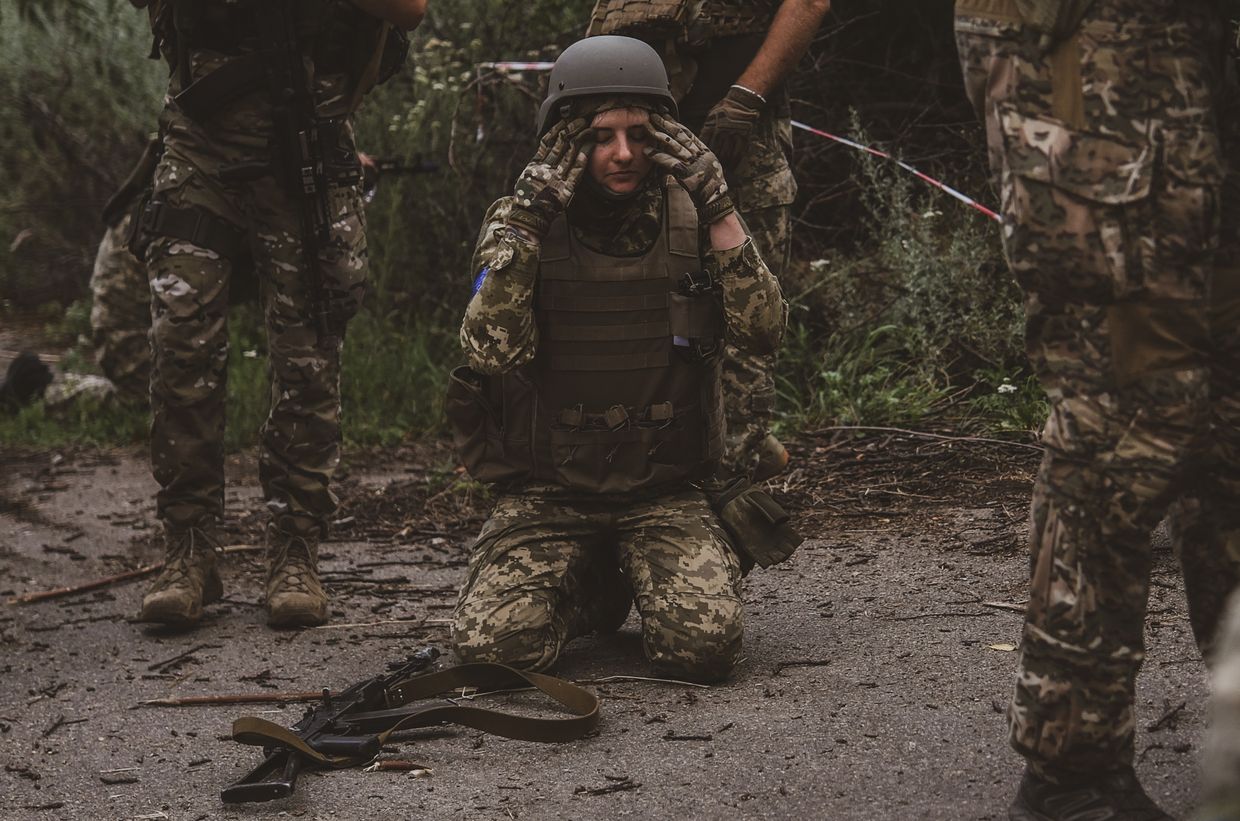The number of Ukrainian service members diagnosed with stress-related neuralgic diseases is gradually increasing, with 29% of these diseases being post-traumatic stress disorder (PTSD), the Defense Ministry reported on July 28.
PTSD can be caused by a traumatic event, when a person experiences or witnesses something horrific, such as combat, a natural disaster, a car crash, or violence.
Key symptoms include intrusive memories (flashbacks), hypervigilance, negative thoughts, and avoidance of anything that reminds a person of the traumatic event.
PTSD can develop from a month to years after the event that triggers it and often comes together with anxiety disorders, panic attacks, addictions, and other conditions.
The share of PTSD from neuralgic diseases among the military will only increase, according to Oksana Sukhorukova, head of the Healthcare Department of the Defense Ministry.
Sukhorukova said that psychological support and assistance to the military should be provided at all stages of service, including self-help or peer-to-peer assistance, crisis interventions, psychological development points at a safe distance from the front line, and long-term psychological assistance.
Particular attention should be paid to supporting service members returning from captivity and their families, Sukhorukova added.
"We are obliged to support families all along the way: from the moment they receive a report that their loved one is missing, through the search, waiting for them, and to their release," she said.
Over the past two years, the Ukrainian Electronic Healthcare System (EHS) has recorded a significant increase in the number of patients with PTSD.
The same number of patients were diagnosed in the first two months of 2024 as in the entire year of 2021.














